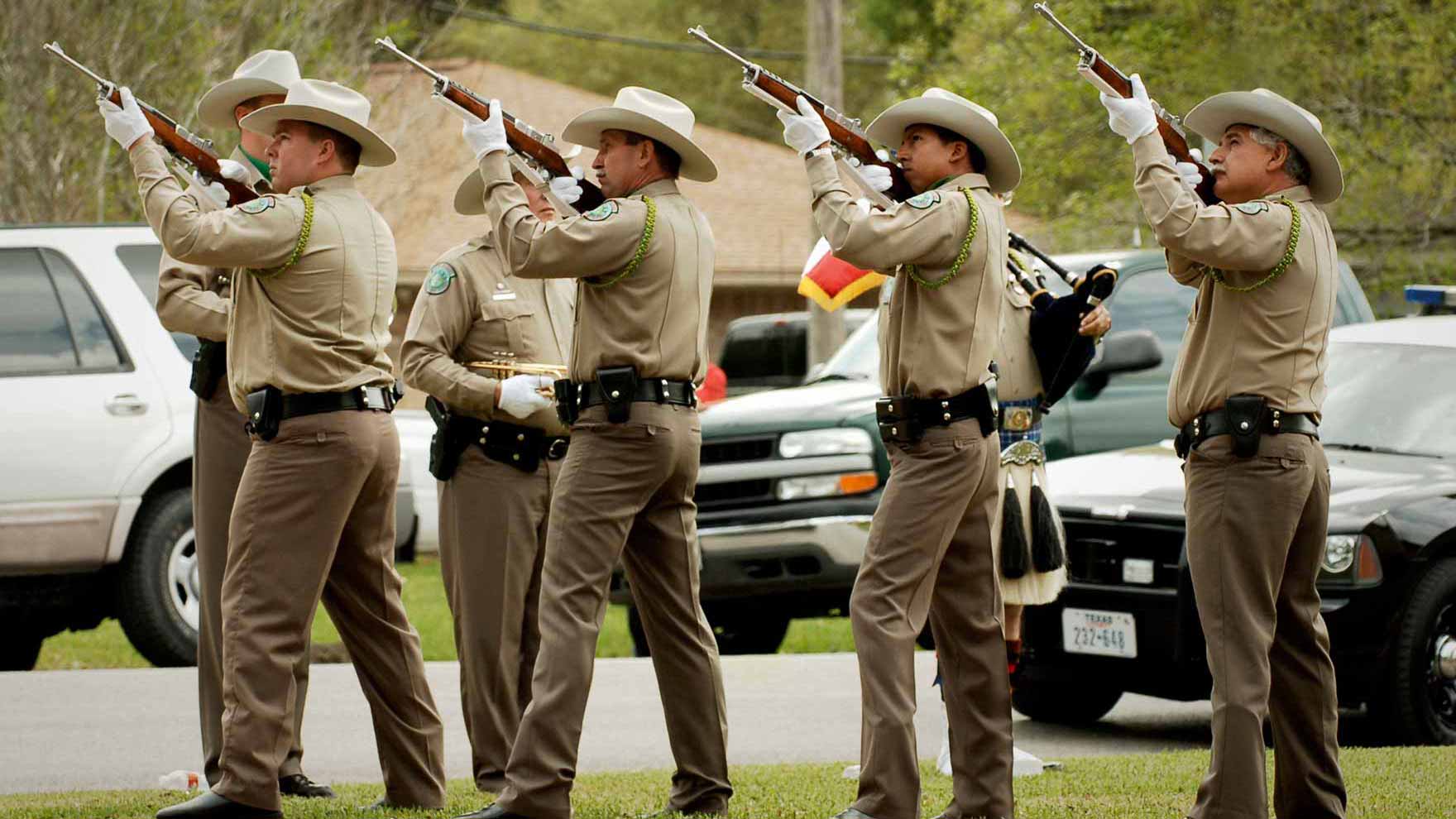
When it comes to wildlife conservation and protecting natural resources, game wardens play a vital role. These dedicated individuals are responsible for enforcing laws and regulations related to hunting, fishing, and wildlife conservation.
Game wardens, also known as conservation officers or wildlife officers, are often tasked with patrolling vast areas of land and water to prevent illegal activities and ensure the safety of both wildlife and the public. Their work involves a unique blend of law enforcement, environmental protection, and community outreach.
In this article, we will delve into 19 fascinating facts about game wardens. From their rigorous training to their daily responsibilities and the challenges they face, you will gain a deeper understanding of the important role these guardians of the wild play in preserving our natural heritage.
Key Takeaways:
- Game Wardens are like superheroes for wildlife, protecting animals and their habitats while enforcing laws and educating the public about conservation.
- Their dedication and passion make Game Wardens unsung heroes, working tirelessly to ensure future generations can enjoy the beauty of our natural world.
Game Wardens are often referred to as the “guardians of the wild.”
These dedicated individuals play a vital role in enforcing hunting and fishing laws, ensuring the preservation of wildlife populations and their habitats.
The Game Warden profession traces its roots back to the late 19th century.
It originated in the United States as a response to the rapid decline of wildlife due to unregulated hunting and trapping.
Game Wardens undergo rigorous training to prepare for their challenging responsibilities.
They receive specialized education in wildlife management, law enforcement, marksmanship, and survival skills.
Game Wardens have the authority to enforce both wildlife and general state laws.
They can issue citations, arrest individuals, conduct investigations, and serve as first responders in emergencies.
Game Wardens often work in remote areas, far from urban centers.
This requires them to be self-sufficient and have a broad range of skills, including navigation and wilderness survival.
Game Wardens utilize a variety of tools and equipment in their daily work.
These may include firearms, boats, off-road vehicles, and specialized wildlife monitoring devices.
Game Wardens collaborate with other law enforcement agencies and wildlife organizations.
They work together to combat poaching, protect endangered species, and promote conservation efforts.
Game Wardens play an essential role in educating the public about wildlife conservation.
They give presentations, conduct outreach programs, and engage with communities to raise awareness about the importance of preserving our natural resources.
Game Wardens often work irregular hours and are on-call for emergencies.
They must be prepared to respond to incidents at any time, including weekends, holidays, and during adverse weather conditions.
Game Wardens sometimes have to confront dangerous situations in the line of duty.
They may encounter armed suspects, deal with aggressive wildlife, or navigate hazardous terrain.
Game Wardens use their investigative skills to solve cases related to wildlife crimes.
They gather evidence, interview witnesses, and collaborate with forensic experts to build strong cases for prosecution.
Game Wardens may assist in wildlife research and habitat management studies.
They collect data, monitor populations, and contribute valuable information to scientific research efforts.
Game Wardens patrol public lands, waterways, and private properties to ensure compliance with hunting and fishing regulations.
They play a crucial role in protecting the natural environment for future generations to enjoy.
Game Wardens often face challenging weather conditions while on duty.
Whether it’s sweltering heat, freezing temperatures, or heavy rain, they remain committed to their mission of conservation.
Game Wardens work closely with local communities and landowners to address wildlife-related issues.
They provide guidance on managing wildlife interactions, resolving conflicts, and mitigating damage caused by wildlife.
Game Wardens are passionate about the preservation of wildlife.
Their love for nature and dedication to the protection of animals drive them in their daily work.
Game Wardens may specialize in specific areas of wildlife enforcement.
These specialties can include marine fisheries, big game management, environmental crimes, or search and rescue operations.
Game Wardens contribute to conservation efforts beyond their law enforcement duties.
They engage in habitat restoration, wildlife rehabilitation, and participate in educational programs to promote sustainable practices.
Game Wardens are the unsung heroes of wildlife protection.
Their hard work and dedication ensure that future generations can continue to experience the beauty and diversity of our natural world.
Conclusion
In conclusion, game wardens play a vital role in protecting wildlife and enforcing laws related to hunting, fishing, and conservation. They work tirelessly to ensure the sustainable management of natural resources and the preservation of our environment for future generations. Game wardens possess a unique combination of knowledge, skills, and passion for wildlife, making them true stewards of the outdoors.
FAQs
Q: What qualifications do I need to become a game warden?
A: The qualifications to become a game warden can vary by state, but typically, a high school diploma or equivalent is required. Additionally, many states have specific requirements such as completing a law enforcement training program and passing a physical fitness test.
Q: What are the primary duties of a game warden?
A: Game wardens have a range of responsibilities including enforcing hunting and fishing regulations, conducting investigations, patrolling natural areas, educating the public about wildlife conservation, and assisting in search and rescue operations.
Q: Is being a game warden dangerous?
A: While the job of a game warden can be challenging and potentially dangerous at times, they receive comprehensive training in self-defense, firearms, and emergency response techniques to ensure their safety in the field.
Q: Can game wardens make arrests?
A: Yes, game wardens have the authority to make arrests and issue citations for violations of wildlife and conservation laws. They work closely with other law enforcement agencies to enforce regulations and bring offenders to justice.
Q: What is the role of game wardens in wildlife conservation?
A: Game wardens are at the forefront of wildlife conservation efforts. They monitor and protect wildlife populations, engage in habitat restoration projects, and collaborate with other organizations to promote sustainable management practices.
Game wardens' fascinating work extends beyond law enforcement, encompassing wildlife management strategies that ensure thriving ecosystems. Wildlife conservation efforts rely on their dedication to protecting habitats and species. Game wardens also contribute to environmental law by upholding regulations and educating the public about responsible outdoor practices. Explore more captivating facts about these unsung heroes and their crucial role in preserving our natural world.
Was this page helpful?
Our commitment to delivering trustworthy and engaging content is at the heart of what we do. Each fact on our site is contributed by real users like you, bringing a wealth of diverse insights and information. To ensure the highest standards of accuracy and reliability, our dedicated editors meticulously review each submission. This process guarantees that the facts we share are not only fascinating but also credible. Trust in our commitment to quality and authenticity as you explore and learn with us.


